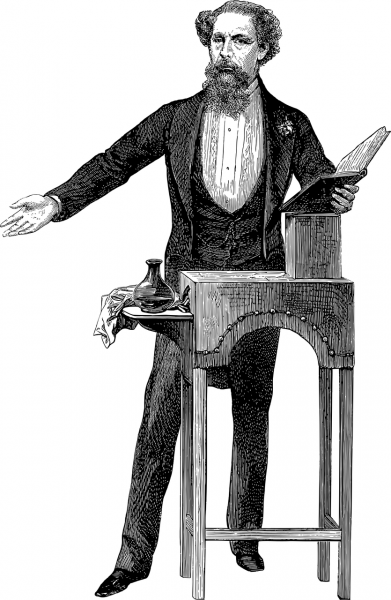Edgar Allan Poe: The Mastermind Behind Dark and Haunting Tales

Introduction:
Edgar Allan Poe, an American writer and poet, is often regarded as one of the most influential figures in the realm of Gothic literature. Known for his dark and mysterious tales, Poe’s works continue to captivate readers even today. This article aims to provide a comprehensive insight into the life, works, and evolution of Edgar Allan Poe for those with a general interest in this subject.
I. Understanding Edgar Allan Poe:

A.
Early Life and Background:
– Born on January 19, 1809, in Boston, Massachusetts.
– Orphaned at a young age and raised by John Allan, a wealthy businessman in Richmond, Virginia.
– Poe’s troubled relationship with his foster father and the impact it had on his writing.
B. Writing Style and Themes:
– Poe’s unique style characterized by dark, eerie atmospheres and psychological exploration of the human mind.
– Themes of death, madness, guilt, and the supernatural prevalent in his works.
– Emphasis on constructing suspense and tension through intricate plotlines and unreliable narrators.
– Influence on the development of detective fiction through his creation of C. Auguste Dupin.
C. Notable Works:
– “The Raven”: Poe’s most famous poem, known for its musicality and haunting repetition of the word “nevermore.”
– “The Fall of the House of Usher,” “The Tell-Tale Heart,” and “The Cask of Amontillado”: Widely regarded as some of his finest short stories.
– “The Murders in the Rue Morgue”: The first modern detective story featuring the brilliant detective C. Auguste Dupin.
II. Historical Evolution of Edgar Allan Poe:
A. Early Literary Career:
– Poe’s beginnings as a writer with poetry collections such as “Tamerlane and Other Poems.”
– Early struggles and lack of recognition from the literary community.
– First taste of success with the publication of “The Narrative of Arthur Gordon Pym of Nantucket.”
B. Editorial Career and Critical Reception:
– Poe’s editorial work for various magazines, including the influential “Graham’s Magazine” and “The Broadway Journal.”
– Controversies surrounding his harsh reviews and literary feuds.
– Critical reception of his works during his lifetime and their influence on subsequent generations.
C. Posthumous Recognition and Legacy:
– Poe’s tragic and mysterious death in 1849.
– The rise of Poe’s posthumous reputation and recognition as a literary genius.
– Enduring influence on writers, artists, and filmmakers across various genres.
– Popularity of Poe’s works in the modern era, evident in adaptations, references, and celebrations.
III. Featured Snippet-friendly Structure:
A.
B. Understanding Edgar Allan Poe
– Early Life and Background
– Writing Style and Themes
– Notable Works
C. Historical Evolution of Edgar Allan Poe
– Early Literary Career
– Editorial Career and Critical Reception
– Posthumous Recognition and Legacy
D.
: Insert video about Edgar Allan Poe’s life and influence.
Conclusion:
Edgar Allan Poe’s enduring legacy as a master of the macabre and the epitome of Gothic literature remains unparalleled. His dark tales, evocative imagery, and exploration of the human psyche continue to resonate with audiences worldwide. Through this article, we have explored Poe’s life, his unique writing style, and the historical evolution of his works. As we delve into the world of Edgar Allan Poe, we unravel a captivating journey into the shadowy depths of human imagination.
FAQ
What are some key themes in Edgar Allan Poes works?
What is Edgar Allan Poes contribution to literature?
What is Edgar Allan Poes most famous poem?
Flere Nyheder
Saxofonist: vejen til den rette musiker
Introduction: Edgar Allan Poe, an American writer and poet, is often regarded as one of the most influential figures in the realm of Gothic literature. Known for his dark and mysterious tales, Poe’s works continue to captivate readers even toda...
05 november 2025
Kunst som katalysator for social forandring
Introduction: Edgar Allan Poe, an American writer and poet, is often regarded as one of the most influential figures in the realm of Gothic literature. Known for his dark and mysterious tales, Poe’s works continue to captivate readers even toda...
09 oktober 2025
Gør din bolig mere energivenlig med enkle tricks
Introduction: Edgar Allan Poe, an American writer and poet, is often regarded as one of the most influential figures in the realm of Gothic literature. Known for his dark and mysterious tales, Poe’s works continue to captivate readers even toda...
09 oktober 2025
Bryllupsfotograf i Kolding: Fang de magiske øjeblikke på din store dag
Introduction: Edgar Allan Poe, an American writer and poet, is often regarded as one of the most influential figures in the realm of Gothic literature. Known for his dark and mysterious tales, Poe’s works continue to captivate readers even toda...
31 august 2025











